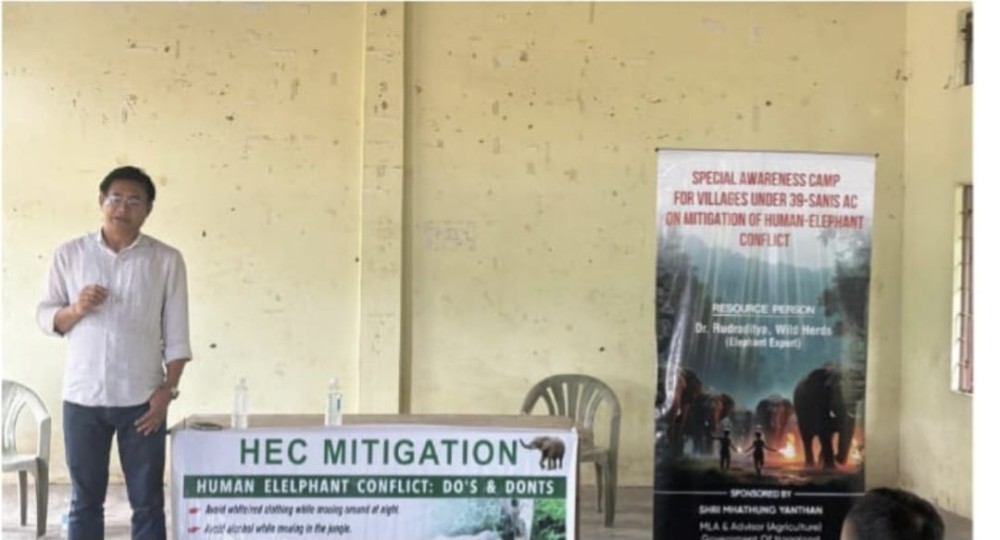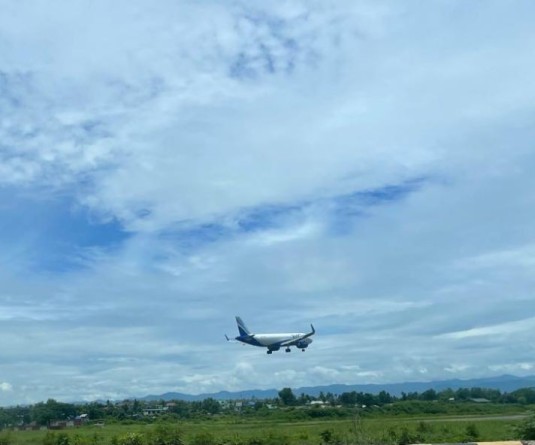Advisor Mhathung Yanthan speaking during HEC awareness and mitigation programme covering 14 villages from August 2 to 10, 2025. (DIPR Photo)

Nine-day campaign covers 14 villages with low-cost, humane deterrent training
WOKHA, AUGUST 11 (MExN): In a step to address the growing challenge of Human–Elephant Conflict (HEC) in Wokha district, Mhathung Yanthan, Advisor (Agriculture), Government of Nagaland, spearheaded a constituency-wide awareness and mitigation programme from August 2 to 10.
The programme highlighted the urgent need for coexistence strategies in areas where HEC has caused recurring loss of crops, property damage, and human casualties. Moving beyond reactive relief measures, the initiative focused on practical, low-cost, and sustainable solutions grounded in community empowerment and scientific expertise.
The event featured Dr. Rudraditya, an internationally recognised wildlife veterinarian and elephant ecologist from Bengaluru, with over 18 years of field experience in India and Africa. Renowned for pioneering chili-based deterrent methods to prevent crop raids by elephants, his approach is celebrated for being cost-effective, sustainable, and humane.
Over the nine days, the campaign covered 14 villages along the routes Pyotchu–Lakhuti and Baghty–Sanis–Okotso, where Dr. Rudraditya conducted live demonstrations on preparing and applying chili-based deterrents, hands-on training for farmers and local volunteers, and interactive community dialogues to adapt solutions to local conditions.
According to the organisers, the initiative marks a “paradigm shift” in how rural constituencies can address human–wildlife conflicts, moving the approach from confrontation to coexistence. It underscores that sensitive leadership, when combined with community engagement and scientific knowledge, can deliver lasting solutions.
With its success in Wokha district, the HEC Mitigation Awareness Programme is seen as a replicable model for other vulnerable regions in Nagaland and the Northeast. It reaffirms that governance rooted in people’s needs and environmental stewardship can bring about impactful and sustainable change.





